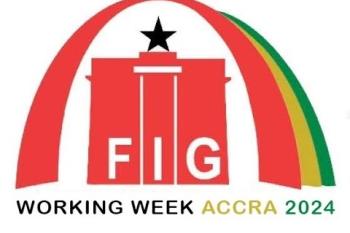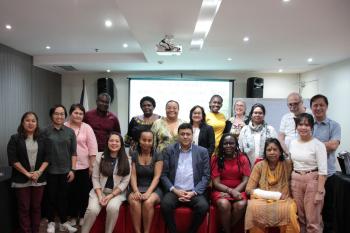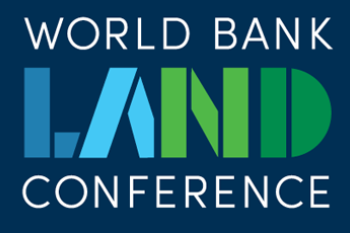
Bomet County launches an STDM-based Land Information Management System
Dr. Alexander Chirchir, the Chief Officer for Agriculture- Livestock Development and Fisheries in Bomet county giving his opening remarks during the launch of the Smallholder Dairy Commercialization Programme- STDM LIMS database in Bomet.
The STDM-based database provides comprehensive socio-economic and spatial data on land and natural resources within three sub counties in Bomet. The data was generated through participatory enumerations and geospatial mapping within Dairy Centralization Areas 1, 2 and 3, and captured 52 communal resources Bomet East, 43 communal resources in Chepalungu, and 12 communal resources in Bomet Central (including cattle access corridors, communal grazing lands, salt licks, water points, cattle dips etc) sub counties respectively. In addition, total of 1020 households, the corresponding dairy animals per household and private resources have been geo-referenced for all SDCP dairy farmers from the three sub-counties. ‘Through the Scaling Up Participatory Enumeration and Mapping using STDM in Securing Grazing Land Rights project in Bomet county, poor communities have strengthened tenure on land natural resources, which they depend on for their livelihoods through pro-poor and gender responsive land records’ documentation using STDM’ noted the SDCP Bomet Project Coordinator Mr. Evans Kiplagat. ‘As much as this launch marks completion of enumeration of the SDCP affiliated smallholder dairy farmers in Bomet, this is the start of an operational process to reclaim and revitalize lost communal assets which we will advocate to be scaled county wide,’ he stated.
Participants keenly following the proceedings of the launch of the STDM LIMS data base and center in SDCP Bomet
Efforts to expand the STDM-based land and natural resources’ information database of all the Dairy Commercialization Areas (DCA) 1, 2 and 3 in SDCP are in progress. The goal is to make the database operational, therefore easing the location of resources, and their participatory, sustainable management by the communities. The database will also be useful in producing an inventory that will track the available resources versus the animal population, thus informing the carrying capacity of the land and stocking rates for Bomet County. This intervention was implemented under the Land and Natural Resources Tenure Security Learning Initiative for East and Southern Africa (TSLI-ESA). This is a regional project jointly implemented by GLTN and IFAD as a key intervention to strengthen efforts on identifying and addressing land and natural resources tenure security issues in IFAD-supported projects in selected countries in Eastern and Southern Africa (ESA). By integrating pro-poor and gender-responsive land documentation tools, TSLI-ESA strengthens the rights of poor communities to land and natural resources, and the revenue streams linked to those rights.
Participants pose for a photo outside the Kilimanjaro conference hall, Twiggs Annex Hotel
Submitted by/Photos: Brendah Achungo


